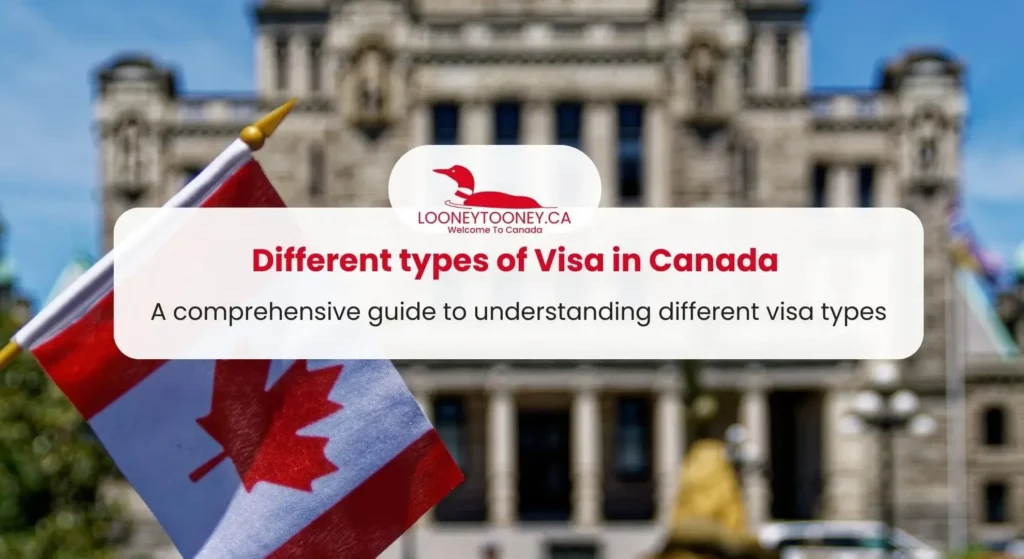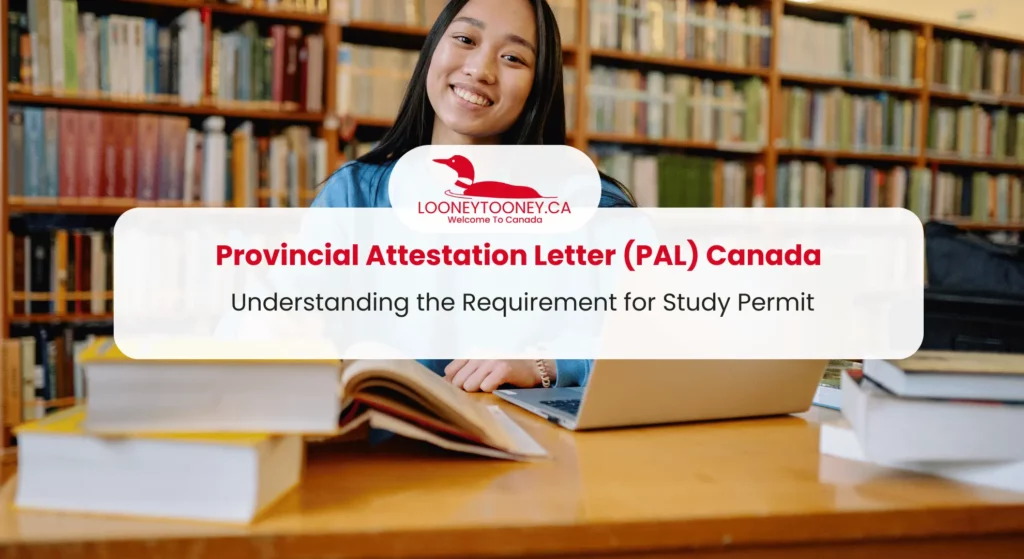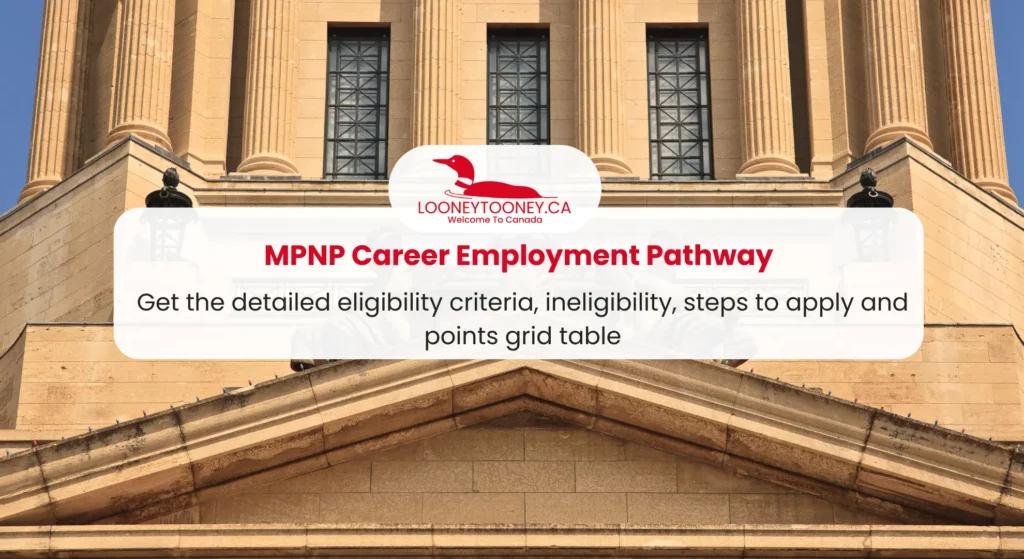Canada, with its breathtaking landscapes, vibrant cities, and welcoming culture, has become a top destination for people from all corners of the globe. Whether you dream of studying amidst its scenic beauty, working in its dynamic environment, or simply exploring its vast expanse, Canada has a visa tailored just for you. In this guide, we’ll break down the various temporary resident visa in Canada options, making your dream a step closer to reality.
Table of Content:
- What is TRV / Temporary Resident Visa in Canada?
- What are the Different Categories of Temporary Resident Visa in Canada?
- What are the Specific Requirements by Type of Applicant?
- How to Apply for a Temporary Resident Visa in Canada?
- What Happens During Application Review?
- Arrival in Canada
What is TRV / Temporary Resident Visa in Canada?
The Temporary Resident Visa in Canada, often termed a visitor visa, is your passport for short-term stays in Canada. Whether you’re here for sightseeing, business meetings, or catching up with loved ones, the TRV ensures your visit is smooth and legal.
This TRV is primarily for those looking to experience Canada for a short duration, be it for tourism, business, or family visits. It’s typically valid for six months but can be extended under certain conditions.
Eligibility: To be granted a TRV in Canada, applicants must
- Show they meet the requirements of the Immigration and Refugee Protection Act (IRPA) and the Immigration and Refugee Protection Regulations.
- Convince an officer they’ll leave Canada once their visa expires.
- Demonstrate sufficient funds for their stay and return journey.
- Not have intentions to work or study in Canada unless given permission.
- Have a clean slate with no criminal history.
- Not pose any security threats to Canada.
- Provide any additional documents requested to prove their admissibility.
- Be in sound health and undergo a medical examination if deemed necessary.
What are the Different Categories of Temporary Resident Visa in Canada?
The following are the various categories of temporary resident visa in Canada.
- Super Visas
- Diplomatic and Official Visas
- Courtesy Visas
- Facilitation Visas
- Transit Visas
a. Super Visas
Super Visas are designed specifically for parents and grandparents of Canadian citizens or permanent residents. These long-term visas allow them to stay with their families in Canada for up to two years without needing to renew their status. To qualify, applicants should be the parent or grandparent of a Canadian citizen or permanent resident and must have medical insurance, among other requirements.
b. Diplomatic and Official Visas
Diplomatic and Official Visas cater to foreign representatives and their family members, facilitating their stay in Canada. These visas are specifically for those traveling to Canada on official duties.
c. Courtesy Visas
Courtesy Visas are granted to individuals who hold significant diplomatic or official positions but aren’t eligible for the Diplomatic and Official Visa. These are meant for those undertaking official duties in Canada and require an official invitation from a Canadian governmental or international institution, along with meeting other specific criteria.
d. Facilitation Visas
Facilitation Visas are intended for Canadian citizens with dual nationality who don’t possess a Canadian passport. The primary aim of these visas is to ease their travel to Canada, and applicants need to provide proof of their Canadian citizenship.
e. Transit Visas
Transit Visas are for travelers passing through Canada for a duration of less than 48 hours. These are ideal for brief stopovers in Canada while heading to another destination. To qualify, travelers should hail from a visa-required country and be traveling to and from specific nations.
What are the Specific Requirements by Type of Applicant?
a. Minors
Special provisions are in place for minors under 18 traveling to Canada. These provisions aim to safeguard the minors’ well-being during their stay. Essential documentation, such as a letter of authorization from parents, is mandatory for eligibility.
b. Business Persons and Business Delegations
Business Persons and Business Delegations visas are curated for professionals visiting Canada for business-related activities, including meetings, conferences, and other events. However, holders of this visa are not permitted to join the Canadian labor market.
c. Persons Wishing to Enter Canada for the Purpose of Giving Birth
Visas for Persons Wishing to Enter Canada for the Purpose of Giving Birth are available for non-residents who desire to give birth in Canada, ensuring their child acquires Canadian citizenship. Applicants must demonstrate their capability to cover medical and other associated expenses.
d. Intending Organ Donors
Intending Organ Donors visas are for individuals keen on donating an organ to a Canadian citizen or resident. The primary objective is to streamline the organ transplant process. Eligibility hinges on proving a relationship with the organ recipient and undergoing necessary medical evaluations.
How to Apply for a Temporary Resident Visa in Canada (Visitor Visa)?
Applying for a temporary resident visa in Canada involves a step-by-step process. Follow the steps given below, from gathering essential documents to completing the application and undergoing a thorough review.
Step 1: Gather documents
If you are located outside of Canada, utilize the Document Checklist [IMM 5484] (PDF, 1.12 MB) to aid you in assembling the necessary documents for your application submission. Certain visa offices may have additional document requirements specific to your country. For more details, you can refer to the Visitor Visa Application page.
If you are currently residing within Canada, it is imperative that you use the Document Checklist – Applicants in Canada [IMM 5721] (PDF, 0.91 MB) to compile the required documents for your application submission to the Case Processing Centre – Ottawa (CPC-O).
Note that failing to provide all the requested information and documents may result in delays in the processing of your application.
Minors Traveling Alone
Minors, who are under the age of 18 and are traveling without their parents or legal guardians or with someone other than them, are advised to carry an authorization letter. This letter, preferably written in English or French, should be signed by both parents or legal guardians and must include the name of the responsible adult who will be looking after the children in Canada.
Minors with Sole Parent or Guardian
In the case of minors traveling with only one parent or legal guardian, it is recommended to have an authorization letter, preferably in English or French, from the non-accompanying parent or guardian.
Translation of Documents
For any document that is not in English or French, it is essential to provide:
- The corresponding translation in either English or French.
- An affidavit from the individual who performed the translation, unless they are a certified translator.
Translations can be carried out by:
- An individual proficient in both languages (English or French and the non-official language), or
- A Canadian certified translator who is a recognized member of a provincial or territorial translators and interpreters organization in Canada.
In cases where the translation is not conducted by a Canadian-certified translator, the individual responsible for the translation must provide an affidavit. This affidavit should affirm their proficiency in the languages involved and vouch for the accuracy of the translation.
The affidavit should be solemnly affirmed in the presence of the following, depending on your location:
Within Canada:
- Notary public
- Commissioner of oaths
- Commissioner of taking affidavits
The authority to certify may differ between provinces and territories. It is advisable to seek guidance from your local provincial or territorial authorities.
Outside of Canada:
- Notary public
Also, the authority to administer oaths can vary from one country to another.
Note: Translations must not be undertaken by the applicants themselves or by any members of the applicant’s family. This encompasses parents, guardians, siblings, spouses, common-law partners, conjugal partners, grandparents, children, aunts, uncles, nieces, nephews, and first cousins.
Step 2: Complete the application
The forms listed below are the ones that need to be completed and submitted:
- Application for Temporary Resident Visa [IMM 5257] (PDF, 0.56 MB)
- Family Information (IMM 5707 or IMM 5645)
- Document Checklist [IMM 5484] (PDF, 1.12 MB)
- Document Checklist – Applicants in Canada [IMM 5721] (PDF, 0.91 MB), if applicable
- Statutory Declaration of Common-law Union [IMM 5409] (PDF, 0.78 MB), if applicable
- Use of a Representative [IMM 5476] (PDF, 1.53 MB), if applicable
- Authority to release personal information to a designated individual [IMM 5475] (PDF, 1.52 MB), if applicable
You might need to provide additional supporting documents if requested by a visa officer. Submitting incorrect or deceptive information on these forms is a violation. The details you furnish on your application are subject to verification.
Be Complete and Accurate
When filling out the form, make sure to complete all sections. If a section doesn’t apply to you, simply write “Not Applicable” or “NA,” except for your name (last name and given name[s]). It’s really important to know that if your application is incomplete, it might get rejected, causing delays. If you need more space for any part of the form, you can print an extra page with that section, fill it out, and submit it along with your application.
Completing the Form
It’s essential to answer all the questions on this form unless stated otherwise. To make the process smoother and minimize errors that could delay your application, its recommended to download and complete the form on a computer. Additionally, you can save your form and return to it later, offering you more flexibility.
Step 3: Pay the fees
There are two types of fees involved:
- Application processing fee
- Biometric fee
To calculate the total fees in Canadian dollars, refer to the table below. You must include the processing fees with your application. If you or your family members are required to provide biometrics, make sure to pay the biometric fee alongside the processing fee in the same manner to prevent delays in processing your application. In some cases, you may be asked to pay fees in the local currency.
| Application | $CAN |
| Visitor visa (including super visa) – per person Single or multiple entry temporary resident visa | $100 |
| Visitor visa – per family (1 fee per family of 5 or more people)Single or multiple entry temporary resident visa; maximum fee for a family of 5 or more people applying at the same time and place | $500 |
| Transit Visa | No fee |
Biometrics Fees
When required, biometric fees apply to individuals and families applying for immigration services. Check the fee structure below to understand the costs associated with biometric information submission.
| Biometrics fees | $CAN |
| Biometrics (per person) | 85 |
| Biometrics (per family) (2 or more people)Maximum fee for a family of 2 or more people applying at the same time and place | 170 |
Be aware that fees are subject to change at any time. Verify your eligibility before making payments and collect all the required documents before submitting your application.
It’s important to note that fees are non-refundable, irrespective of the final decision. For instance, if you are deemed ineligible for a temporary resident visa in Canada, the fees will not be refunded. If you decide to reapply, you will need to pay both the processing fee and, if applicable, the biometric fee again.
How to pay the fees for your application?
To complete your payment for your application, you will require:
- A valid email address.
- Access to a printer for receipt printing.
- A credit card, Debit MasterCard®, or Visa® Debit card.
Here are the steps to make your payment:
- Visit the provided link for Online Payment.
- Follow the instructions provided online.
- At the end of the process, click the button to print the official IRCC receipt containing a barcode. Ensure you print two copies.
- Attach a copy of the receipt to your application.
- Retain the second copy of the receipt for your personal records.
Step 4: Submit the application
You have the option to submit your application at a Visa Application Center (VAC) serving your region or apply online.
For the collection of your biometric fingerprints and photo:
- If you are outside Canada and the U.S., you can visit one of the Canada Visa Application Centers (VAC) worldwide.
- In the United States, you can go to one of the Application Support Centers located throughout the country.
- If you are in Canada, starting from December 3, 2019, you can visit a designated Service Canada location.
- If you are an asylum claimant or applying for work and study permits, you may provide your biometrics at the port of entry.
Refer to the list of biometric collection service points for more details. It’s important to note that if biometric fingerprints and photos are required, there is no need to include physical photographs with your application.
In case you are unable to provide your biometric information (photograph and/or fingerprints) or if you require more than 30 days, kindly get in touch with IRCC and be prepared to provide a detailed explanation.
Submit the Document Checklist
Ensure that you have filled out and enclosed the Document Checklist [IMM 5484] along with your application forms and the supporting documents mentioned on the Document Checklist.
What should I submit with my application?
Make sure to complete the Document Checklist and include it with your application forms. Additionally, ensure that you include all the supporting documents specified on the Document Checklist. If your family members are also applying for Temporary Resident Visa in Canada (TRVs), you can package all of your family’s applications together in the same envelope.
If you are a permanent resident (PR) residing overseas and have decided to renounce (relinquish) your permanent resident status, you must send your application for PR renunciation [IMM 5782] (PDF, 1.59 MB) in a separate envelope, distinct from your Temporary Resident application. Temporary Resident applications can be submitted through a Visa Application Centre (VAC) or online, while PR applications should be mailed separately to the visa office.
What Happens During Application Review?
Upon receipt of your application, IRCC will conduct the following checks to ensure:
- You have accurately filled out and submitted all necessary application forms.
- The application processing fee has been duly paid.
- All the supporting documents have been included.
If your application package is found to be incomplete:
- The application will be returned to you.
- A file will not be created for the application.
- A record will not be maintained until a complete application is provided.
Important Note: To prevent processing delays, it is recommended to pay your biometric fees simultaneously with your application processing fees, using the same payment method.
Processing
A thorough review of your application will be conducted by an officer. The officer will carefully evaluate all the information and documentation you’ve provided, and they will assess it to determine if an interview is necessary. In the event that an interview is required, you will receive notification of the interview date, time, and location.
In case your application is declined, any original documents, including your passport if it was submitted with your application, will be returned to you along with an explanation detailing the reasons for the refusal.
Please be aware that if IRCC have suspicions of fraudulent documents being submitted, they will not be returned.
On the other hand, if your application is approved, any original documents, including your passport (if submitted), will be returned to you along with the requested visa.
For visa-exempt visitors applying for a super visa, upon approval, your passport and documents will be returned to you along with a letter of introduction.
Arrival in Canada
Possessing a valid Temporary Resident Visa does not guarantee entry into Canada. Upon your arrival, an officer at the port of entry will assess whether you still meet the necessary admission criteria.
If there have been alterations in your circumstances between the time of your visa application and your arrival in Canada, or if you provide information not initially available to the visa office, you may face the possibility of being denied entry.
Upon your arrival in Canada, the officer at the port of entry will determine both your eligibility for entry and the duration of your stay. It’s essential to depart from Canada on or before the date indicated by the officer or, if needed, to have your status extended by an official within Canada. Typically, the stamp placed in your passport by a Canadian official is valid for a period of six months, unless otherwise specified by the official.
Take a look at these additional articles:





